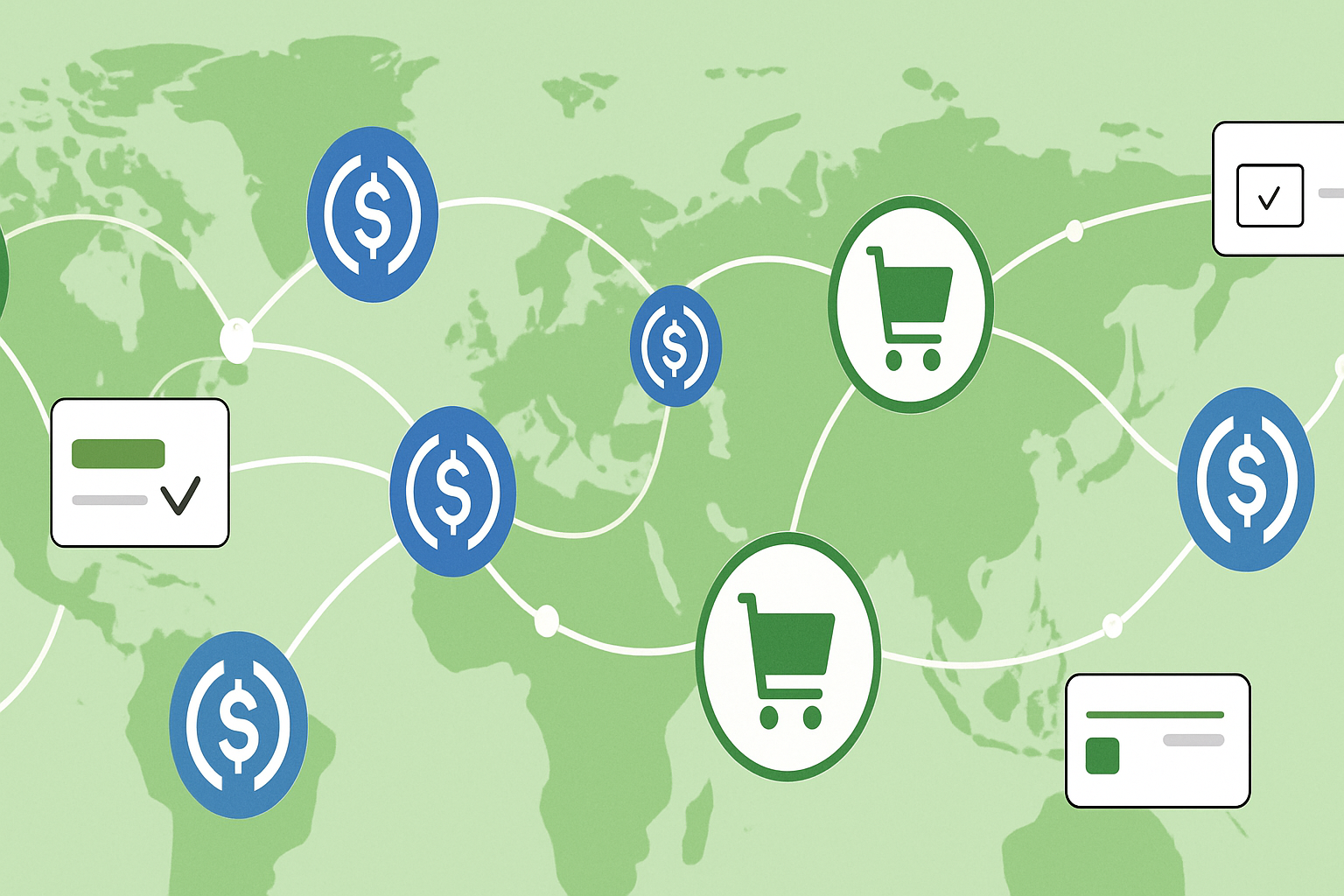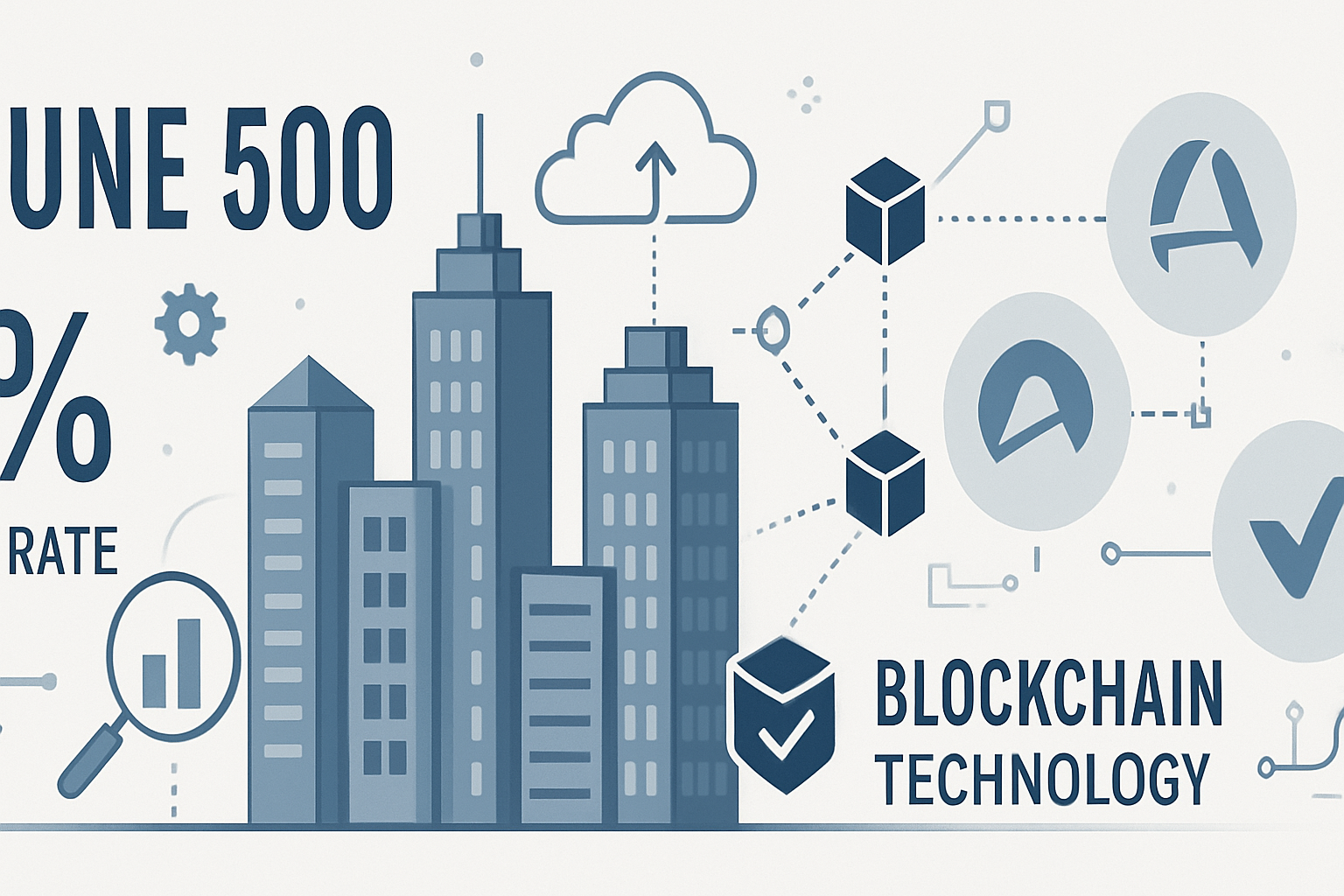- YourCryptoFriend
- Posts
- Issue #47 – Crypto News That Actually Moves Your Business Forward
Issue #47 – Crypto News That Actually Moves Your Business Forward
Finally, crypto news that makes sense for your business – Issue #47
📈 This Week in Business Crypto (2 min)
Shopify Revolutionizes E-Commerce with USDC Stablecoin Payments
The Story: Shopify has partnered with Coinbase and Stripe to enable millions of merchants across 34 countries to accept USDC stablecoin payments directly through their existing checkout flows. This integration launches in late June 2025, marking the largest mainstream adoption of crypto payments in e-commerce history.
Why This Matters: Your customers increasingly expect flexible payment options, and stablecoins offer the speed of crypto with the stability of traditional currency. Unlike volatile cryptocurrencies, USDC maintains a 1:1 peg to the US dollar, eliminating exchange rate risk while providing instant settlement and lower transaction fees than traditional cross-border payments.
What You Can Do:
•For E-commerce Leaders: Evaluate whether your payment processor offers similar stablecoin integration capabilities
•For Finance Teams: Model the potential cost savings from reduced foreign exchange fees and faster settlement times
•For Strategy Teams: Consider how crypto-native customers might prefer businesses that accept digital payments

Source: Shopify Official Announcement
Fortune 500 Blockchain Adoption Hits 60% – Up from 47% Last Year
The Story: According to Coinbase's State of Crypto Q2 2025 report, 60% of Fortune 500 companies are now actively working on blockchain and distributed ledger technology initiatives. Nearly one in five executives say blockchain is core to their long-term corporate strategy, representing a 47% year-over-year increase in strategic commitment.
Why This Matters: This isn't experimental anymore – it's competitive necessity. Companies are using blockchain for supply chain transparency, cross-border payments, digital identity management, and tokenizing real-world assets. The 38% of executives who report blockchain already unlocking new revenue streams aren't early adopters – they're gaining market advantage.
What You Can Do:
•For Operations Teams: Audit your supply chain for transparency opportunities that blockchain could address
•For Treasury Teams: Investigate how peer companies are using stablecoins for international transfers
•For Innovation Teams: Identify which business processes could benefit from immutable record-keeping

Source: Halborn Security Analysis
Institutional Crypto Surge: $50 Billion Flows Into Digital Assets in Q1
The Story: Institutional investors poured $50 billion into crypto funds during the first quarter of 2025, with companies like GameStop leading a wave of corporate treasury diversification into Bitcoin. This represents the largest quarterly institutional inflow on record, driven by regulatory clarity and improved custody solutions.
Why This Matters: When major corporations add crypto to their balance sheets, it signals a fundamental shift in how businesses view digital assets – from speculative investments to legitimate treasury management tools. This trend is creating new opportunities for yield generation, international liquidity management, and inflation hedging.
What You Can Do:
•For CFOs: Research institutional-grade custody solutions and their compliance requirements
•For Risk Management: Develop frameworks for evaluating digital asset allocation in corporate treasuries
•For Board Members: Understand the fiduciary considerations of crypto treasury strategies

Source: PYMNTS Corporate Crypto Analysis
🏢 Industry Spotlight: Real-World Asset Tokenization Transforms Corporate Finance (2 min)
The tokenization of real-world assets (RWAs) has grown 245x in just five years, reaching over $21 billion in value. This isn't just about creating digital versions of physical assets – it's about unlocking liquidity, reducing operational costs, and creating new business models that were impossible with traditional infrastructure.
How It Works in Practice:
Supply Chain Finance: Companies like Walmart and Maersk are tokenizing invoices and shipping documents, creating instant liquidity for suppliers who traditionally waited 60-90 days for payment. Smart contracts automatically release payments when shipment milestones are verified on-chain.
Real Estate Investment: Commercial real estate firms are fractionalizing property ownership through tokens, allowing smaller investors to participate in large deals while providing property owners with faster capital access and reduced transaction costs.
Accounts Receivable: Manufacturing companies are tokenizing their receivables, creating tradeable instruments that provide immediate cash flow while offering investors yield opportunities backed by corporate credit ratings.
Key Business Benefits:
•Improved Capital Efficiency: Unlock value from illiquid assets without traditional financing costs
•Global Market Access: Reach international investors without complex cross-border regulations
•Operational Transparency: Immutable records reduce audit costs and compliance overhead
•Faster Settlement: Smart contracts eliminate intermediary delays and reduce counterparty risk
Implementation Considerations:
•Regulatory Compliance: Ensure tokenization structures meet securities regulations in relevant jurisdictions
•Technology Infrastructure: Partner with established platforms that provide enterprise-grade security and custody
•Market Liquidity: Develop strategies for creating and maintaining secondary market trading
The companies succeeding with RWA tokenization aren't just digitizing existing processes – they're reimagining how value moves through their business ecosystems.
💼 Meeting Prep: Essential Crypto Terms for Business Leaders (1 min)
Stablecoin: A cryptocurrency designed to maintain stable value, typically pegged 1:1 to a fiat currency like the US dollar. USDC and USDT are the most widely used for business payments.
Layer 2 Networks: Blockchain networks built on top of main blockchains (like Ethereum) that offer faster transactions and lower fees. Base (by Coinbase) and Polygon are popular for business applications.
Smart Contract: Self-executing contracts with terms directly written into code. They automatically execute when predetermined conditions are met, eliminating intermediaries and reducing costs.
Digital Asset Custody: Secure storage and management of cryptocurrencies and tokens, similar to how banks custody traditional assets. Institutional custody providers offer insurance and regulatory compliance.
Tokenization: Converting ownership rights of real-world assets (like real estate, invoices, or commodities) into digital tokens that can be traded on blockchain networks.
🎯 What's Coming Next Week
Regulatory Roundup: The Department of Labor's new crypto guidance for retirement plans and what it means for employee benefits
Enterprise Blockchain: How AI and blockchain convergence is creating autonomous business processes
Payment Innovation: Circle's USDC expansion to XRP Ledger and the growing B2B payment ecosystem
YourCryptoFriend helps busy professionals stay ahead of crypto and Web3 trends that matter to their job. No hype—just actionable business insights.
Published by YourCryptoFriend | yourcryptofriend.com
This newsletter is for informational purposes only and does not constitute financial or investment advice. Always consult with qualified professionals before making business decisions involving digital assets.
Reply